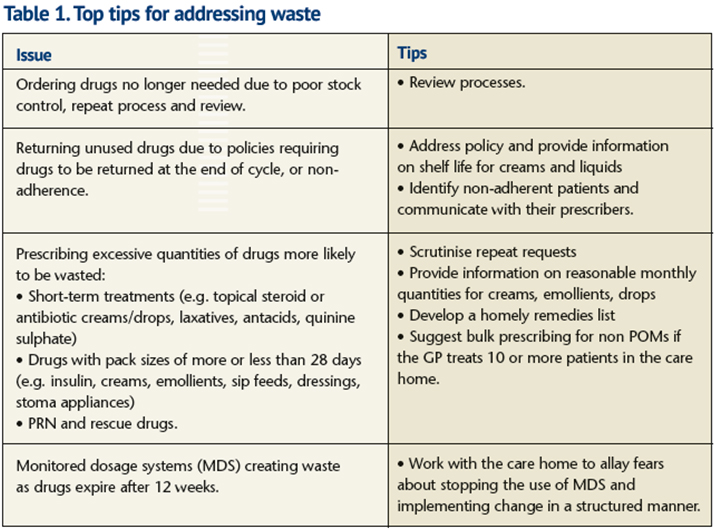2. Reduce waste
The cost of unused prescription medicines in primary care is about £300 million a year in England. Robust repeat prescribing systems, repeat dispensing, MURs, NMS and medication reviews are key areas where pharmacists can work with other practitioners to reduce waste. In care homes, reducing the use of monitored dosage systems (MDS), bulk prescribing and appropriate quantities at end of life are worth targeting.

3. Reduce the use of antipsychotics in dementia
Patients receiving antipsychotic drugs should be reviewed at least every 12 weeks by their doctor to ensure care is compliant with current best practice and that alternatives have been considered.
Pharmacy teams can support care homes and GPs by using the repeat prescribing or dispensing process to identify and refer patients who need review. For patients who can consent, an MUR can provide useful information about the patient's experience of taking antipsychotics to help the GP make an objective decision about the need to continue or stop. Priority is given where:
- An antipsychotic has been prescribed for longer than 12 weeks
- Sedation, anticholinergic or extrapyramidal symptoms are present
- Patient displays behavioural and psychological symptoms of dementia in spite of treatment.
